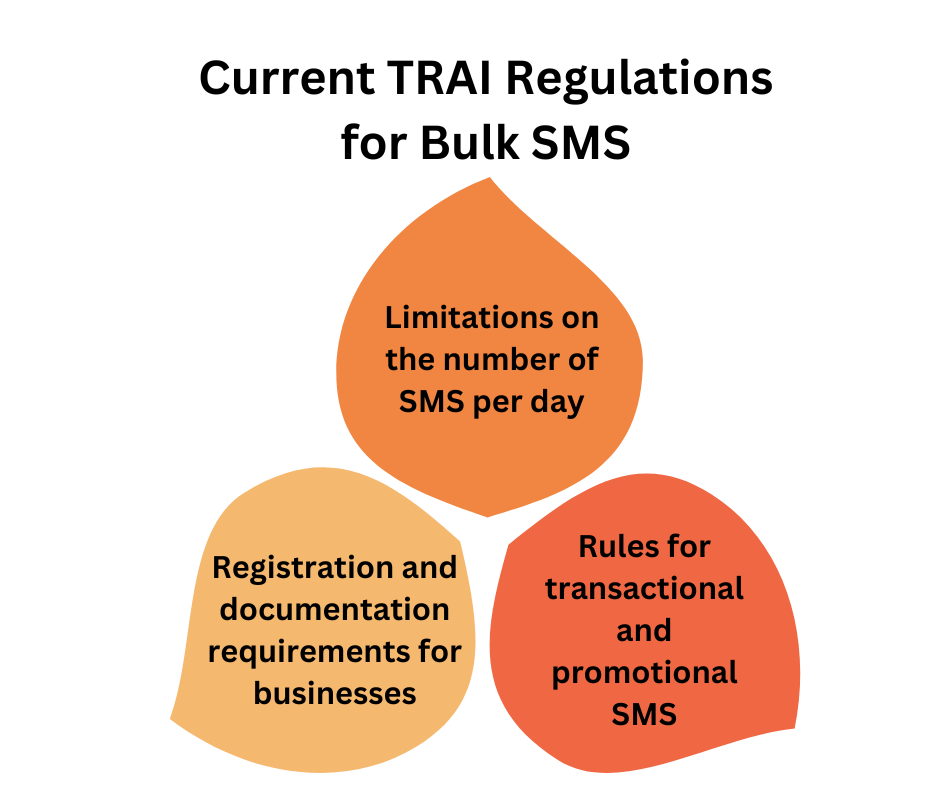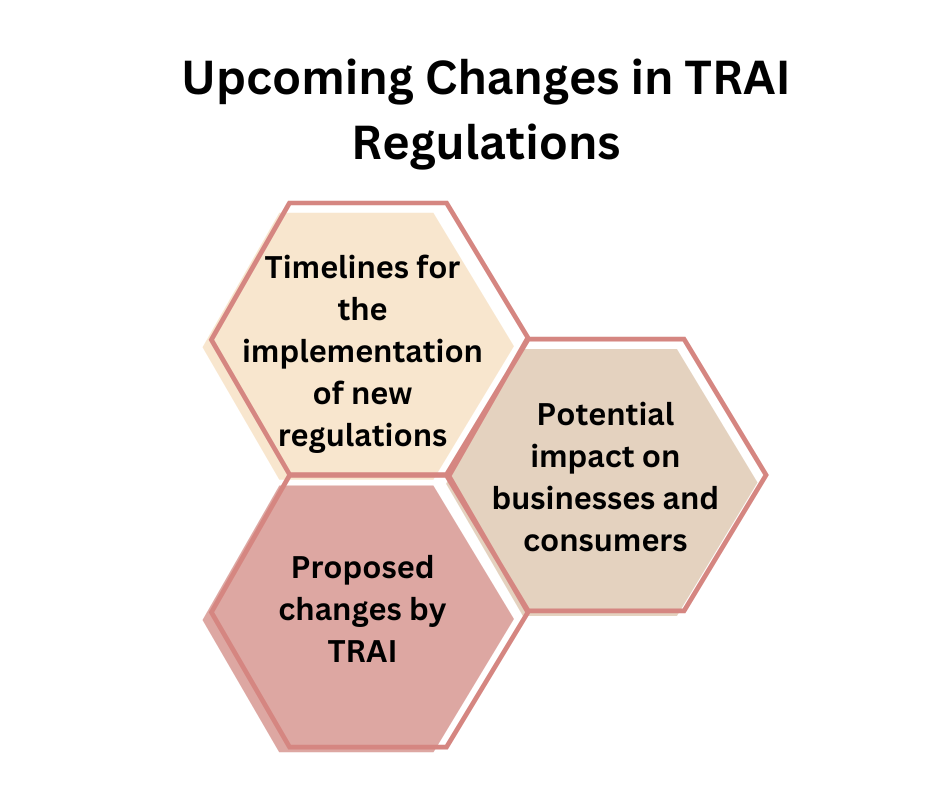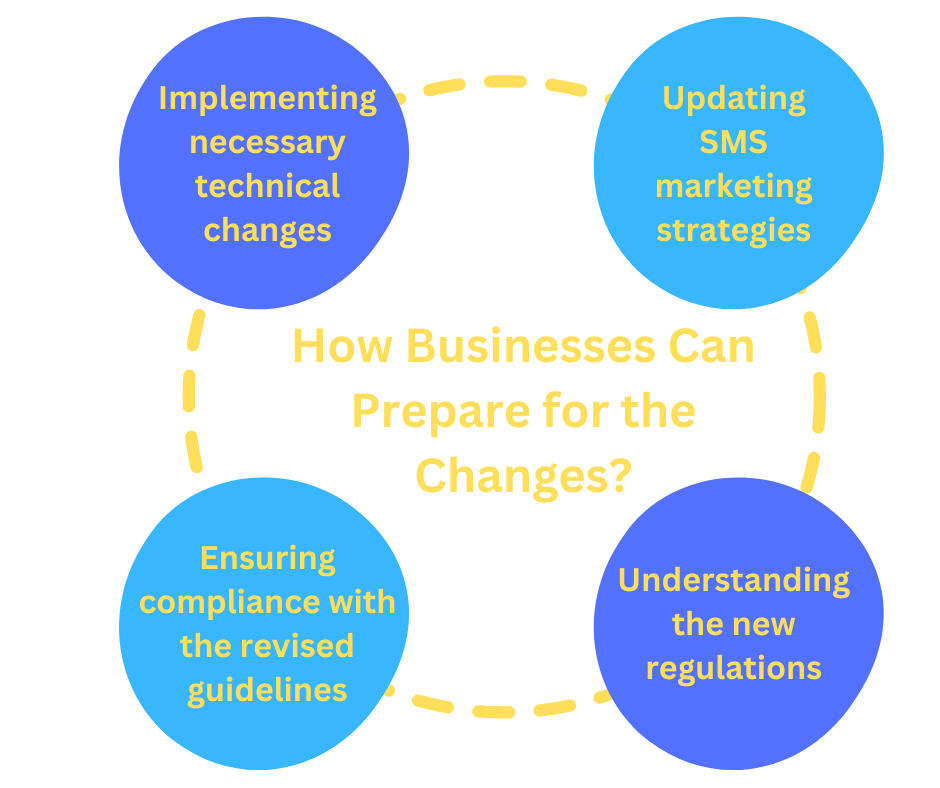Bulk SMS and TRAI Regulations in India: Upcoming Changes and How to Prepare
Bulk SMS refers to the practice of sending a large number of text messages to mobile phones simultaneously. It is commonly used for marketing, alerts, notifications, and communication.
The Telecom Regulatory Authority of India (TRAI) has established regulations to govern the use of bulk SMS services in the country.
These regulations cover aspects such as sender IDs, message content, consent mechanisms, and guidelines for telemarketing messages.
Adhering to TRAI regulations is crucial for businesses and service providers utilizing bulk SMS to ensure compliance and avoid potential penalties.
Current TRAI Regulations for Bulk SMS
The current regulations set by the Telecom Regulatory Authority of India (TRAI) regarding bulk SMS include the following key points:
Limitations on the number of SMS per day
TRAI has set limits on the number of promotional and transactional SMS that can be sent per day from a single SIM card or number to curb unsolicited messages and spam.
However, this limit is 200 SMS per SIM card. if you are sending bulk SMS through servers like fast2SMS then there is no limit.

Rules for transactional and promotional SMS
Transactional messages, which are related to customer transactions or service updates, are subject to different rules compared to promotional messages, which are used for marketing purposes.
TRAI has set up timing for the sending promotional SMS that is from 9 AM TO 9 PM. Whereas no such timing is set for transactional SMS.
Registration and documentation requirements for businesses
To send bulk SMS, businesses are required to register and fulfill certain documentation requirements as mandated by TRAI.
This is aimed at ensuring that only legitimate and authorized entities send out bulk SMS to consumers.
Upcoming Changes in TRAI Regulations
TRAI is very unpredictable they have been changing rules for commercial telecommunication to protect users from spam and fraudulent practices. Some of the possible upcoming changes in TRAI regulations are as follows:
Proposed changes by TRAI
TRAI is proposing changes in regulations related to telecommunication services, including potential revisions in pricing, licensing, and quality of service benchmarks.
Specific areas of change may include spectrum usage charges, interconnection usage charges, and tariff order regulations.

Potential impact on businesses and consumers
These changes could significantly impact telecommunication service providers, leading to potential shifts in pricing strategies, service offerings, and competitiveness in the market.
For consumers, there may be implications for service quality, pricing plans, and choices of service providers.
Timelines for the implementation of new regulations
TRAI is expected to outline a timeline for the implementation of the proposed changes, which may include consultation processes, transition periods, and eventual enforcement of the revised regulations.
Businesses and consumers need to stay updated on the timelines to adapt to the upcoming changes effectively.
How Businesses Can Prepare for the Changes?
We cannot predict the changes but we can be prepared for them. This is a crisp guide that can help you to tackle all the upcoming changes from TRAI.
Understanding the new regulations
Researching and analyzing the specifics of the new regulations, including any potential impact on current business practices and customer interactions.
Consulting legal experts and industry professionals to gain a comprehensive understanding of the legal requirements and implications of the changes.
Updating SMS marketing strategies
Reviewing and revising existing SMS marketing strategies to align with the new regulations and ensure compliance.
Implementing opt-in/opt-out mechanisms as per the updated guidelines to respect consumer preferences and privacy rights.
Exploring alternative communication channels and diversifying marketing approaches to mitigate potential limitations imposed by the regulations.

Implementing necessary technical changes
Evaluating and updating the technological infrastructure to accommodate any new requirements or restrictions imposed by the regulations.
Integrating advanced data security measures to protect customer information by the revised guidelines.
Ensuring compliance with the revised guidelines
Conducting internal audits and assessments to identify areas that require adjustment to comply with the updated regulations.
Providing training for employees to ensure awareness of and adherence to the new guidelines in their respective roles.
Establishing monitoring and reporting procedures to track compliance and address any deviations promptly.
Impact on the SMS Industry
The changing TRAI rules are expected to have a significant impact on the SMS industry in India. Industry experts have expressed diverse views on the potential effects of these changes.
Some challenges such as increased operational costs and reduced profit margins, while others see opportunities for innovation and improved customer engagement.
In addition to the domestic impact, it’s essential to compare these regulations with those in other countries to understand their potential global repercussions.
By examining how similar regulatory changes have been implemented and the outcomes in other countries, we can gain valuable insights to inform our approach in India.
Ultimately, understand the views of industry experts, anticipate potential challenges and opportunities, and compare these TRAI rules with regulations in other countries.
This will be crucial in navigating the evolving landscape of the SMS industry in India.

